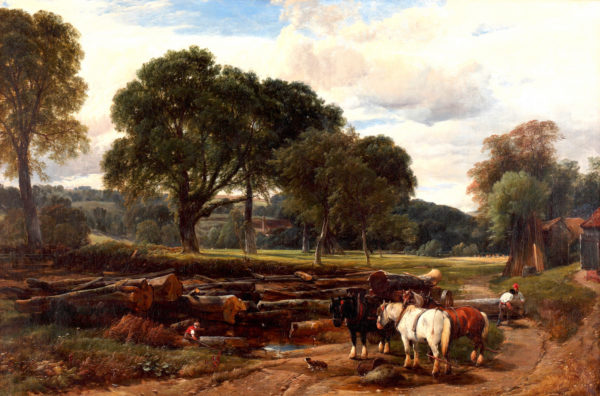Henry Brittan Willis (1810 – 17 January 1884)
English landscape and animal painter
Willis was born in Bristol and worked with his father G.H. Willis, also a landscape painter. He left painting after 1842 after little financial success and traveled to New York USA to take a job in a merchant’s office. Due to health issues he returned to England not even a year later and practiced as a portrait painter in Bristol.
In 1843 Willis settled in London where he gained popularity for his landscapes and animal paintings. from 1844 to 1862, he had frequent exhibits at the Royal Academy, British Institution and Society of British Artists. He also showed his work outside of London in the Liverpool Academy of Arts etc, from 1851-1857 he was a member of the “Free Exhibitions” society. In 1862 he was elected as associate of the “Old” Watercolour Society becoming a full member in 1863; he was a frequent contributor to the society’s exhibitions.
Willis painted rural landscapes all over England, Wales and Scotland, in both oils and watercolor and often featured grouped of farm animals. He sometimes worked in collaboration with other artist such as F.W. Hulme. Four of his paintings were engraved from the “Art Union Annual” of 1847. In 1849 he published “Studies of Cattle and Rustic Figures”.
On January 13 1873m 30 years of Willis’ work was destroyed in a fire at the “London Pantechnicon in Belgravia.
Willis died in his home at 12 Palace Gardens Terrace Kensington, London in January 1884. He is buried in Kensington cemetery at Hanwell, Middlesex. Willis was eclipsed by Constable both in his lifetime and after it.

